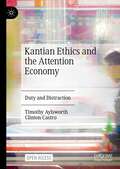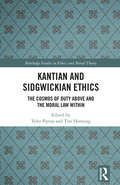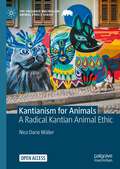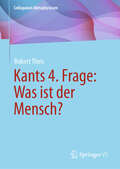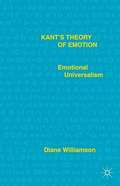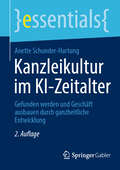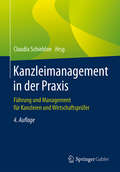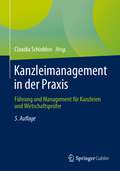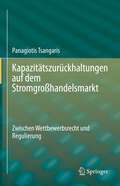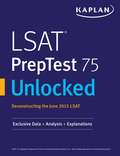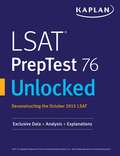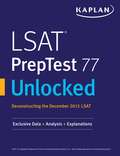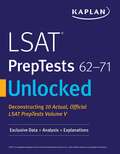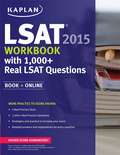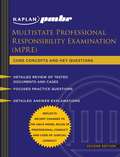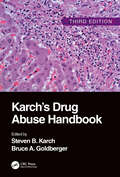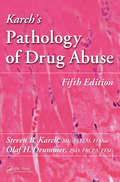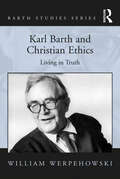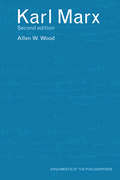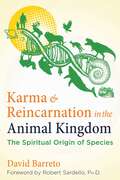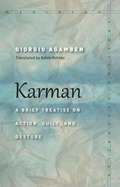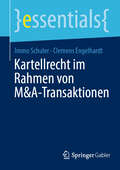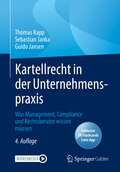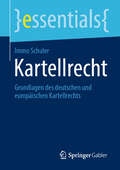- Table View
- List View
Kantian Ethics and the Attention Economy: Duty and Distraction
by Clinton Castro Timothy AylsworthIn this open access book, Timothy Aylsworth and Clinton Castro draw on the deep well of Kantian ethics to argue that we have moral duties, both to ourselves and to others, to protect our autonomy from the threat posed by the problematic use of technology. The problematic use of technologies like smartphones threatens our autonomy in a variety of ways, and critics have only begun to appreciate the vast scope of this problem. In the last decade, we have seen a flurry of books making “self-help” arguments about how we could live happier, more fulfilling lives if we were less addicted to our phones. But none of these authors see this issue as one involving a moral duty to protect our autonomy.
Kantian and Sidgwickian Ethics: The Cosmos of Duty Above and the Moral Law Within (Routledge Studies in Ethics and Moral Theory)
by Tim Henning Tyler PaytasImmanuel Kant and Henry Sidgwick are towering figures in the history of moral philosophy. Kant’s views on ethics continue to be discussed and studied in detail not only in philosophy, but also theology, political science, and legal theory. Meanwhile, Sidgwick is emerging as the philosopher within the utilitarian tradition who merits the same meticulous treatment that Kant receives. As champions of deontology and consequentialism respectively, Kant and Sidgwick disagree on many important issues. However, close examination reveals a surprising amount of consensus on various topics including moral psychology, moral epistemology, and moral theology. This book presents points of agreement and disagreement in the writings of these two giants of philosophical ethics. The chapters will stimulate discussions among moral theorists and historians of philosophy by applying cutting-edge scholarship on each philosopher to shed light on some of the more perplexing arguments and views of the other, and by uncovering and examining points of agreement between Sidgwick and Kant as possible grounds for greater convergence in contemporary moral philosophy. This is the first full-length volume to investigate Sidgwick and Kant side by side. It will be of major interest to researchers and advanced students working in moral philosophy and its history.
Kantianism for Animals: A Radical Kantian Animal Ethic (The Palgrave Macmillan Animal Ethics Series)
by Nico Dario MüllerThis open access book revises Kant’s ethical thought in one of its most notorious respects: its exclusion of animals from moral consideration. The book gives readers in animal ethics an accessible introduction to Kant’s views on our duties to others, and his view that we have only ‘indirect’ duties regarding animals. It then investigates how one would have to depart from Kant in order to recognise that animals matter morally for their own sake. Particular attention is paid to Kant’s ‘Formula of Humanity,' the role of autonomy and the moral law, as well as Kant’s notions of practical reason and animal instinct. The result is a deliberately amended version of Kantianism which nevertheless remains faithful to central aspects of Kant’s thought. The book’s final part illustrates the framework’s use in applied contexts, addressing the issues of using animals as mere means, the ethics of veganism and vegetarianism, and environmental protection. Nico Dario Müller shows how, when furnished with duties to animals, Kant's moral philosophy can be a powerful resource for animal ethicists.
Kants 4. Frage: Was ist der Mensch? (Colloquium Metaphysicum)
by Robert TheisIn seiner berühmten Logikvorlesung stellt Immanuel Kant die berühmten Leitfragen der Philosophie "Was kann ich wissen?", "Was soll ich tun?" und "Was darf ich hoffen?". Dem fügt er dann die Frage "Was ist der Mensch?" an und schreibt, all das, was in den ersten Fragen behandelt würde, könne man zur vierten zählen. Dieses Buch fragt demnach nach dem anthropologischen Subtext der drei ersten Fragen, also: Was erfahren wir über die vierte Frage, wenn Kant sich der Wissens-, Sollens- und Hoffensfrage zuwendet?
Kant’s Theory of Emotion
by Diane WilliamsonWilliamson explains, defends, and applies Kant's theory of emotion. Looking primarily to the Anthropology and the Metaphysics of Morals, she situates Kant's theory of affect within his theory of feeling and focuses on the importance of moral feelings and the moral evaluation of our emotions. Feelings, for Kant, are physiological occurrences (pains and/or pleasures) that are caused by the cognitive faculty, including perception and present experience. Their underlying thoughts must be morally evaluated. She illustrates both the role that emotions play in developing virtue and the role they can play in leading to vice and evil. Kant's theory has an advantage over current cultural and research trends because it neither suggests that we must blindly follow our feelings nor that emotions are irrational forces that must be overcome. Instead, Kant's theory does the best job of helping us to understand and evaluate our emotions.
Kanzleikultur im KI-Zeitalter: Gefunden werden und Geschäft ausbauen durch ganzheitliche Entwicklung (essentials)
by Anette Schunder-HartungWie können Sie sich als Kanzlei auch im KI-Zeitalter noch behaupten? Gute Kanzleien gibt es viele, guten Rat auch – um andere für die eigene Kanzlei zu gewinnen, bedarf es einer systematischen, ganzheitlichen Entwicklung. Nur so heben Sie sich im schriller werdenden Konzert aus 24/7 verfügbarer Software, zunehmend smarten In-house-Juristen und gar berufsfremder Konkurrenz hervor. In diesem essential erfahren Sie, wie Sie sich unverwechselbar machen und Schritt für Schritt ihre höchsteigene Kanzleikultur herausarbeiten – nach innen wie nach außen. Dazu geht Schunder-Hartung in einem strukturierten Verfahren den entscheidenden Fragen auf unterschiedlichen Ebenen nach.
Kanzleimanagement in der Praxis: Führung Und Management Für Kanzleien Und Wirtschaftsprüfer
by Claudia SchieblonDieses Buch bietet einen Überblick über die wichtigen Themen des Kanzleimanagements. Autoren sind Managing Partner national und international agierender Kanzleien unterschiedlicher Ausrichtung. Das Buch richtet sich an Anwälte, Wirtschaftsprüfer und Steuerberater aus kleinen wie großen Einheiten, Fachkräfte aus Management und Business-Teams der Kanzleien sowie an Berater, denen es eine Hilfestellung bei den besonderen Fragestellungen von Kanzleien bietet.Für die 4. Auflage wurde das Buch vollständig überarbeitet und um mehrere Kapitel ergänzt.
Kanzleimanagement in der Praxis: Führung und Management für Kanzleien und Wirtschaftsprüfer
by Claudia SchieblonVon Praktikern für Praktiker: Dieses Buch gibt einen Überblick über die aktuell wichtigen Themen des Kanzleimanagements. Die Autoren sind erfahrene Managing Partner, COOs und Leiter der Business Service-Einheiten von national wie international agierenden Wirtschaftskanzleien. Das Buch richtet sich an Anwälte, Wirtschaftsprüfer und Steuerberater aus kleinen wie großen Kanzleien sowie an Fachleute aus dem Kanzleimanagement und solche, die es werden wollen. Es soll ihnen eine Hilfestellung bei den besonderen Fragestellungen von Kanzleien bieten.Für die 5. Auflage wurde das Buch vollständig überarbeitet und um zahlreiche Themen ergänzt.
Kapazitätszurückhaltungen auf dem Stromgroßhandelsmarkt: Zwischen Wettbewerbsrecht und Regulierung
by Panagiotis TsangarisDieses Buch befasst sich mit der Frage der Kapazitätszurückhaltungen auf dem Stromgroßhandelsmarkt. Stromerzeuger können auf dem Großhandelsmarkt Marktmacht ausüben, indem sie entweder Erzeugungskapazitäten zurückhalten oder Preise über dem Wettbewerbsniveau festsetzen, um einen höheren Marktpreis zu erzielen und damit ihre Einnahmen zu steigern. Nach einer umfassenden Erläuterung der Praktiken der Kapazitätszurückhaltungen und der Probleme, die sich bei einem wettbewerbsrechtlichen Verfahren ergeben, wird in dem Buch analysiert, ob ein erhöhter Grad an Transparenz, wie er in der REMIT und der Verordnung 543/2013 vorgesehen ist, das effiziente Funktionieren der Stromgroßhandelsmärkte und die Untersuchung der Kapazitätszurückhaltungen erleichtern könnte. Außerdem wird untersucht, wie sich das Verbot der Marktmanipulation, wie es in der REMIT vorgesehen ist, auf den Umgang mit den missbräuchlichen Praktiken der Kapazitätszurückhaltungen auf dem Stromgroßhandelsmarkt auswirkt.
Kaplan Companion to LSAT PrepTest 75: Exclusive Data, Analysis & Explanations f
by KaplanTaking an official LSAC PrepTest is great practice for the LSAT, but reviewing a practice test afterward is where you really improve. Supercharge your LSAT prep with The Kaplan Companion to PrepTest 75. Complete explanations for every question and answer choiceSample Logic Games sketches and Reading Comprehension roadmapsThe Inside Story: Exclusive data on question difficulty and student performance8 Can't Miss Features of PrepTest 75PrepTest 75 In Context: Comparison of PrepTest 75 to recent LSAT trendsGlossary of LSAT terminologyEvery question and answer choice is discussed, along with detailed strategies for racking up points and exclusive data on student performance identifying the most difficult questions and how PrepTest 75 compares to recent LSAT trends. In addition, you'll see sample sketchwork for logic games and sample roadmaps for reading comprehension passages. If you are new to the LSAT, a glossary offers definitions for terminology that will help you to think like the testmaker. *PrepTest 75 not included. LSAT® is a registered trademark of the Law School Admission Council, which neither sponsors nor endorses this product.
Kaplan Companion to LSAT PrepTest 76: Exclusive Data, Analysis & Explanations fo
by KaplanTaking an official LSAC PrepTest is great practice for the LSAT, but reviewing a practice test afterward is where you really improve. Supercharge your LSAT prep with The Kaplan Companion for PrepTest 76. Complete explanations for every question and answer choiceSample Logic Games sketches and Reading Comprehension roadmapsThe Inside Story: Exclusive data on question difficulty and student performance8 Can't Miss Features of PrepTest 76PrepTest 76 In Context: Comparison of PrepTest 76 to recent LSAT trendsGlossary of LSAT terminologyEvery question and answer choice is discussed, along with detailed strategies for racking up points and exclusive data on student performance identifying the most difficult questions and how PrepTest 76 compares to recent LSAT trends. In addition, you'll see sample sketchwork for logic games and sample roadmaps for reading comprehension passages. If you are new to the LSAT, a glossary offers definitions for terminology that will help you to think like the testmaker. *PrepTest 76 not included. LSAT® is a registered trademark of the Law School Admission Council, which neither sponsors nor endorses this product.
Kaplan Companion to LSAT PrepTest 77: Exclusive Data, Analysis & Explanations fo
by KaplanTaking an official LSAC PrepTest is great practice for the LSAT, but reviewing a practice test afterward is where you really improve. Supercharge your LSAT prep with The Kaplan Companion to PrepTest 77. Complete explanations for every question and answer choiceSample Logic Games sketches and Reading Comprehension roadmapsThe Inside Story: Exclusive data on question difficulty and student performance8 Can't Miss Features of PrepTest 77PrepTest 77 In Context: Comparison of PrepTest 77 to recent LSAT trendsGlossary of LSAT terminologyEvery question and answer choice is discussed, along with detailed strategies for racking up points and exclusive data on student performance identifying the most difficult questions and how PrepTest 77 compares to recent LSAT trends. In addition, you'll see sample sketchwork for logic games and sample roadmaps for reading comprehension passages. If you are new to the LSAT, a glossary offers definitions for terminology that will help you to think like the testmaker. *PrepTest 77 not included. LSAT® is a registered trademark of the Law School Admission Council, which neither sponsors nor endorses this product.
Kaplan Companion to LSAT PrepTests 62-71: Exclusive Data, Analysis & Explanations for 10 Actual, Official LSAT PrepTests Volume V
by KaplanTaking a practice test is great practice for the LSAT, but reviewing a practice test afterward is where you really improve. Supercharge your LSAT prep with Kaplan's comprehensive explanations for PrepTests 62-71. Every question and answer choice is discussed, along with detailed strategies for racking up points. In addition, you'll see sample sketchwork for logic games and sample roadmaps for reading comprehension passages. If you are new to the LSAT, a glossary offers definitions for terminology that will help you to think like the testmaker. *PrepTests 62-71 not included. LSAT® is a registered trademark of the Law School Admission Council, which neither sponsors nor endorses this product.
Kaplan LSAT Workbook 2015
by KaplanKaplan's LSAT Workbook 2015 is the perfect companion to our best-selling LSAT Premier book or for students looking for more practice. Kaplan's LSAT Workbook 2015 with 1,000+ Real LSAT Questions features: OVER 1,000 NEWLY RELEASED QUESTIONS: Recently-released LSAT practice questions for the best in realistic practice. DETAILED EXPLANATIONS: Easy-to-read, comprehensive explanations for every question and every answer choice. FOUR MOST RECENT FULL-LENGTH EXAMS: Four of the most recent full-length exams allow for more realistic practice. Use in conjunction with Kaplan's free "LSAT Proctor Anywhere" app available for iOS devices. PRODUCED BY KAPLAN'S PRODUCT DEVELOPMENT TEAM: The team behind Kaplan's world-leading LSAT prep courses has designed, developed and authored Kaplan's LSAT Workbook and Kaplan's LSAT Premier - the #1 best-selling comprehensive LSAT prep book on the market.
Kaplan PMBR: Multistate Professional Responsibility Exam (Second Edition)
by Kaplan PmbrThis book is designed to provide students with the focused review, effective practice, and suplemental study tools that are needed for success on the MPRE.
Karch's Drug Abuse Handbook
by Steven B. Karch and Bruce A. GoldbergerKarch’s Drug Abuse Handbook, Third Edition remains the quintessential compendium addressing the pharmacological, medical, and legal aspects of drugs and informing the forensic community of the latest scientific advances and emergent practices. For this edition, Dr. Karch has brought on clinical and forensic toxicology expert Dr. Bruce Goldberger, editor-in-chief of the Journal of Analytical Toxicology and president of the American Board of Forensic Toxicology, to serve as co-editor. In addition, world-renowned scientists and medical professionals have contributed their work and expertise in tackling the latest developments in drug testing, drug-related medical emergencies, and the drug toxicology. Topics addressed include genetic testing in drug death investigation, pathology, toxicogenetics, alcohol, post-mortem toxicology, new psychoactive substances, the latest legal issues and challenges as well as drugs and drug testing in sports, and the ethical, legal, and practical issues involved. Vivid pictures and diagrams throughout illustrate the pathological effects of drugs and the chemical make-up and breakdown of abused drugs. With unparalleled detail, the latest research and the highest level of authoritative medical scientific information, The Drug Abuse Handbook, Third Edition remains the definitive resource for drug related issues.
Karch's Pathology of Drug Abuse
by Steven B. Karch MD Olaf DrummerWritten in the same accessible manner as previous editions, the fifth edition of Karch‘s Pathology of Drug Abuse is an essential guide to the pathology, toxicology, and pharmacology of commonly abused drugs. The book focuses on the investigation of drug-related deaths, practical approaches to the detection of drug abuse, and discussions of medical
Karl Barth and Christian Ethics: Living in Truth (Barth Studies)
by William WerpehowskiThis critical study of Karl Barth's Christian theological ethics discusses Barth's controversial and characteristically misunderstood ethics of divine command. The surprising relation of his 'divine command ethics' to contemporary 'narrative theology' and 'virtue ethics' and specific moral themes concerning bonds between parents and children, the nature of truth telling, and the meaning of Christian love of God and neighbor are all discussed. This book reveals Barth's richness, depth, and insight, and places his work in constructive connection with salient themes in both Catholic and Protestant ethics. Attentive to the fullness of Barth's Christological vision and to the purposes and limits of his reflections on the Christian life in pursuit of the good, William Werpehowski also advances conversations in Christian ethics about the nature of practical deliberation and decision, the orientation and dispositions that embody moral faithfulness, and the question and features of 'natural morality.'
Karl Marx (Arguments of the Philosophers)
by Allen WoodThis is one of the most respected books on Marx's philosophical thought. Wood explains Marx's views from a philosophical standpoint and defends him against common misunderstandings and criticisms. All the major philosophical topics in Marx's work are considered: the central concept of alienation; historical materialism and Marx's account of social classes; the nature and social function of morality; philosophical materialism and Marx's atheism; and Marx's use of the Hegelian dialectical method and the Marxian theory of value.
Karl Marx (Arguments of the Philosophers)
by Wood AllenThis is one of the most respected books on Marx's philosophical thought. Wood explains Marx's views from a philosophical standpoint and defends Marx against common misunderstandings and criticisms of his views. All the major philosophical topics in Marx's work are considered: the central concept of alienation; historical materialism and Marx's account of social classes; the nature and social function of morality; philosophical materialism and Marx's atheism; and Marx's use of the Hegelian dialectical method and the Marxian theory of value.The second edition has been revised to include a new chapter on capitalist exploitation and new suggestions for further reading. Wood has also added a substantial new preface which looks at Marx's thought in light of the fall of the Soviet Union and our continued ambivalence towards capitalism, exploring Marx's continuing relevance in the twenty-first century.
Karma and Reincarnation in the Animal Kingdom: The Spiritual Origin of Species
by David BarretoInvestigates the spiritual anatomy and evolution of animals• Examines the anatomy of the spiritual bodies of animals, including their aura, etheric fields, chakras, and mental, astral, and buddhic bodies • Details how reincarnation and karma work in the animal kingdom, including how the way that animals die can have different effects on their spiritual bodies in the astral realms • Explores the spiritual, energetic, and psychic abilities of many animals and insects Where do the spirits of animals go after they die? Do animals have chakras or auras? Why were animals worshipped in ancient religions? Exploring these questions and more, David Barreto presents a deep investigation into the spiritual evolution of the animal kingdom, from ants and cockroaches to cats, dogs, owls, pigeons, dolphins, and whales. He examines the spiritual anatomy of animals, including their aura, etheric fields, chakras, and mental, astral, and buddhic bodies. Detailing how reincarnation works among various species, Barreto explores their experiences between physical lives, how they accrue karma, and how the way that animals die can have different effects on their spiritual bodies in the astral realms. Drawing on both modern physics and metaphysics, he reveals, for example, how dogs can love unconditionally because of their large electromagnetic field, which nourishes the etheric bodies of those around them, and how cats can detect subtle energy shifts and disharmonies and conduct etheric filtration while they sleep. Examining esoteric schools as well as ancient spiritual traditions around the world, the author explores how animals are viewed and worshipped in different religions and how animal adoration and animal-connected gods arose in ancient Egypt, India, and China. He looks at animal totems, animal archetypes, animals in alchemy, and the astral connections between animals and elementals. The author also examines the spiritual and energetic repercussions of meat consumption and animal sacrifice, revealing the astral and etheric components of slaughterhouses. Detailing the role of the animal kingdom in the Age of Aquarius, the author shows how, with the awakening of this new astrological era, animals will have their earthly lives elevated with lasting worth and dignity, equal to the love and respect they have been transmitting for millennia.
Karman: A Brief Treatise on Action, Guilt, and Gesture (Meridian: Crossing Aesthetics)
by Giorgio Agamben Adam KotskoWhat does it mean to be responsible for our actions? In this brief and elegant study, Giorgio Agamben traces our most profound moral intuitions back to their roots in the sphere of law and punishment. Moral accountability, human free agency, and even the very concept of cause and effect all find their origin in the language of the trial, which Western philosophy and theology both transform into the paradigm for all of human life. In his search for a way out of this destructive paradigm, Agamben not only draws on minority opinions within the Western tradition but engages at length with Buddhist texts and concepts for the first time. In sum, Karman deepens and rearticulates some of Agamben's core insights while breaking significant new ground.
Kartellrecht im Rahmen von M&A-Transaktionen (essentials)
by Clemens Engelhardt Immo SchulerIn diesem essential wird der typische Ablauf einer M&A-Transaktion unter besondere Berücksichtigung des Kartellrechts dargestellt. Neben den Fragen, inwieweit kartellrechtlich zulässig Information zwischen den beteiligten Unternehmen ausgetauscht werden dürfen und an welchen Stellen des M&A-Kaufvertrags Kartellrecht eine Rolle spielt, wird auch das kartellrechtliche Vollzugsverbot und das daraus resultierende fusionskontrollrechtliche Anmeldeerfordernis dargestellt.
Kartellrecht in der Unternehmenspraxis: Was Management, Compliance und Rechtsberater wissen müssen
by Thomas Kapp Guido Jansen Sebastian Felix JankaUnter Verzicht auf juristische Detaildiskussion gibt der Autor allen Unternehmern, Vorständen, Geschäftsführern und Aufsichtsräten einen praktischen Leitfaden zur schnellen Erfassung kartellrechtlicher Fragestellungen (Wettbewerbsbeschränkungen, Missbrauchskontrolle, Fusionskontrolle) an die Hand. Das erste Kartellrechtsbuch für Praktiker. Es enthält bereits die Neuregelungen der 8. GWB-Novelle.
Kartellrecht: Grundlagen des deutschen und europäischen Kartellrechts (essentials)
by Immo SchulerIn diesem essential werden die Grundlagen des deutschen und europäischen Kartellrechts kurz und übersichtlich aufbereitet. Nach einer kurzen wettbewerbstheoretischen Einführung zu den Zielen des Kartellrechts vermittelt der Autor zunächst die Grundlagen der „3 Säulen“ des Kartellrechts, das heißt des Kartellverbots, des Verbots des Missbrauchs einer marktbeherrschenden Stellung sowie der Zusammenschlusskontrolle. Dabei werden die jeweiligen Eingriffsvoraussetzungen, nach deutschem und nach europäischem Kartellrecht, ebenso beleuchtet wie die möglichen Rechtsfolgen im Falle eine Kartellrechtsverstoßes. Abschließend wird die weiterhin an Bedeutung gewinnende private Durchsetzung kartellrechtlicher Schadensersatzansprüche dargestellt.
